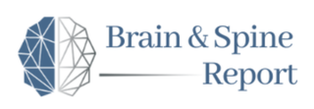|
The Covid-19 pandemic has thrown a wrench into everyone’s plans and this disruption has changed the lives of everyone in neurosurgery. Many of us may benefit from having more time on our hands than we otherwise might have had. For example, studying for a shelf exam is not as difficult as when you are on a clinical rotation. If you had purposely front-loaded your medical school schedule to have this time saved up for traveling (like I did), I am sorry. Remaining productive during this pandemic is essential for neurosurgery applicants. First and foremost, you want to retain as much of your sanity as possible. Secondly, you want to get something out of this quarantine to show programs how capable you are of remaining productive and dedicated to the field even during such unfortunate times. With prospective studies and basic science coming to a halt, many other options still remain. The first, and possibly easiest solution, is to start with literature reviews. If you ask any established neurosurgeon, they will have a plethora of invited papers that just need to be written or revised sitting on their desk. Ideally, you will be learning and writing about a topic that truly interests you while contributing to the field. This time is particularly ideal for such an endeavor since your mentor will (hopefully) have more free time than usual given that most ORs are closed. Take advantage of this opportunity, as it is unique for mentors to answer emails on the same day they are received. A second set of studies that are perfectly positioned to be started now are systematic reviews and meta-analysis. In their simplest form, a systematic review of the literature is carried out through more than one indexing platform (e.g. Ovid MEDLINE, EMBASE, etc.) and studies are carefully selected following an original hypothesis with specific inclusion and exclusion criteria. Then, rigorous statistics are carried out to combine results from different studies and determine whether your hypothesis holds true. Thousands of abstracts yielding hundreds of full text papers need to be screened and read – the process takes time, of which you now have plenty. Similarly, this screening (at least in my experience) is easier done en block, rather than in bits and pieces. A third set of studies are chart reviews. These studies warrant special attention, as you need to be part of an IRB to rightfully review patients’ charts. If you are, then these studies are also ideally suited for quarantine. If you are not, try getting on one if your institution is still accepting amendments. I think this should serve as a reminder that is best to be on IRB even if your contributions will be potentially be minimal. Finally, even if you are doing all of these things, you might still have plenty of time on your hands. Research is not the only way to remain productive: study, prepare for the boards if you still have to take them, read articles about neurosurgery. And finally, watch the Rhoton lectures. They are an often underutilized but incredibly valuable resource. Check back for a list of the top digital neurosurgery resources for medical students. Having time, however, should not be an excuse for starting meaningless projects: it is essential that the reason for the project is sound and solid, the question unanswered in the literature, and the analysis carried out rigorously. As you have more time on your hands, so do the reviewers. We encourage submissions from anyone wanting to share their personal experience with Covid-19 and how it has affected them. Submit your article to submission@brainandspinegroup.org. AuthorUmberto Tosi, MD Brain & Spine Report is a product of the Brain and Spine Group, Inc. and the statements made in this publication are the authors’ and do not imply endorsement by any other group. The material on this site is for informational purposes only and is not medical advice. Unauthorized reproduction is prohibited. Categories All Comments are closed.
|
Categories
All
Archives
October 2023
|





4/22/2020